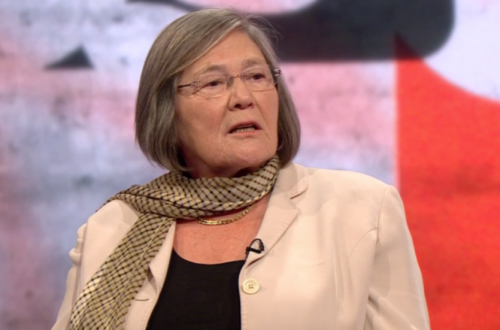This is a cross post by Mick Hartley
Here’s an interesting recent piece from Fergal Keane at the BBC. A number of refugees from the fighting in Syria have ended up in the coastal city of Izmir, in Turkey. Keane is reminded of the almost completely forgotten fate of Smyrna, a largely Greek city with significant (and wealthy) European and American enclaves, which was once the cosmopolitan centre of the Ottoman Empire in Anatolia:
[I]t was the Greek invasion of the Ottoman lands of Asia Minor that set in train the disaster of Smyrna.
With British support they invaded Anatolia in 1919 and marched inland.
There were massacres of Turks and these helped infuse a powerful nationalist response.
When the Turkish army defeated the Greeks and descended on Smyrna, there was wanton killing of tens of thousands – pillage and rape and the great fire whose effect is measured now in absences.
Giles Milton covers the story well in his Paradise Lost: Smyrna 1922. What strikes one now is the extraordinary brutality shown by both sides, but in particular the final dramatic evacuation of the remaining Greeks and other Europeans as the Turkish army advanced on the city, with the quaysides crammed with desperate survivors waiting for ships to take them away, and the harbour full of floating bodies.
Gone are the streets in which the voices of Greeks, Turks, Armenians, Levantines and Jews mingled.
Lost is the rich mix of cultures that drew inspiration from the great philosophical and religious traditions of West and East, that traded and prayed and made music and told stories in the narrow lanes of the bazaar and by the glittering water of the Aegean on summer evenings.
The crisis ended in 1923 with a treaty providing for the mass exchange of populations across the region. Muslims were forced to go to Turkey by the Greeks. Christians were forced to go west by the Turks. More than a million and a half people were uprooted.
To the traveller wandering modern Izmir in search of the past, it is as if the Greeks had never been here.
It’s not the only mass transfer of populations in modern times of course: the partition of India is the best known, and the bloodiest. On the other side of the Greek-Turkish divide the city of Salonica, once a cosmopolitan place with large Jewish and Turkish populations, had its Muslims cleansed as part of the same agreement that decided the fate of Smyrna, and then later, more brutally, had its Jewish community destroyed by the Nazis.
Ethnic cleansing was quite the thing at the time. Europe we know about of course, but let’s stick to the Middle East. Baghdad, for example, was 40% Jewish in the 1920s – a community going back millennia. The Farhud of July 1941, a pogrom against the Jews after the collapse of the pro-Nazi government of Rashid Ali, marked the beginning of the end. Ten years later the expulsion of the Jews was almost complete.
It was the same across the Middle East: Jews fled or were expelled from Algeria, Libya, Tunisia, Yemen, Egypt, Lebanon, Iran…
And then, of course, there’s Palestine….
It’s the only one that people now remember: the only case of ethnic cleansing that’s still a living issue.
And why is that? Well…Greece accepted the Greeks expelled from Smyrna and Asia Minor, while the Turks in turn accepted the Turkish refugees from Salonica and thereabouts. Israel (and America) accepted Jews expelled from the Arab Middle East…but that’s where the reciprocity ends.
The Arabs never accepted their fellow Arabs expelled from Palestine. It was the era of Arab Nationalism, with its central premise that the peoples of the Arab World, from the Atlantic Ocean to the Arabian Sea, constituted one nation bound together by common linguistic, cultural, religious, and historical heritage. But that didn’t seem to include the Palestinians. They were always Palestinians first and foremost: refugees, many still living in camps, just waiting for the destruction of the Zionist entity to reclaim their former lands. They were left to the tender care of the international community, in the shape of UNWRA, while the Arab world largely washed its hands of them. They were much more useful as suffering Palestinians, in the cause of eliminating Israel, than as fellow Arabs to be welcomed into the great Arab nation.
Back in the day of course, when men were men and the fruits of war included wholesale rape pillage and destruction, refugees couldn’t be left behind because everyone worked on the unspoken assumption that, in the event, they’d be brutally slaughtered. But times have moved on, and we’re more civilised now. The Arabs knew that the Palestinians would be protected, even after they came under Israeli control after 1967. Indeed after three wars in which Israel was threatened with destruction by the surrounding Arab armies, in each of which Israel triumphed, the Arabs have continued to act as if they’d won, in the sure knowledge that – contrary to how wars used to be fought – there’d be no massacre of Palestinians.
Life may not have been cosy in the West Bank and in Gaza, but despite claims to the contrary mass murder has never been on the agenda. It’s partly the way things are now, and partly that the Jews, asJenny Tonge recently remarked, should apparently be held to higher standards of behaviour than the surrounding Arab states – or indeed states elsewhere. After all, Sri Lanka may have killed 40,000 civilians in its most recent efforts to rid itself of its troublesome Tamils. Or was it 100,000? Really, who cares? The world could barely stifle a collective yawn.
So that’s why Smyrna is worth remembering. The Palestinians weren’t the only victims of ethnic cleansing in the Middle East during the turbulent middle years of the 20th century – and there’s a reason why they’re the only ones we know about now.


